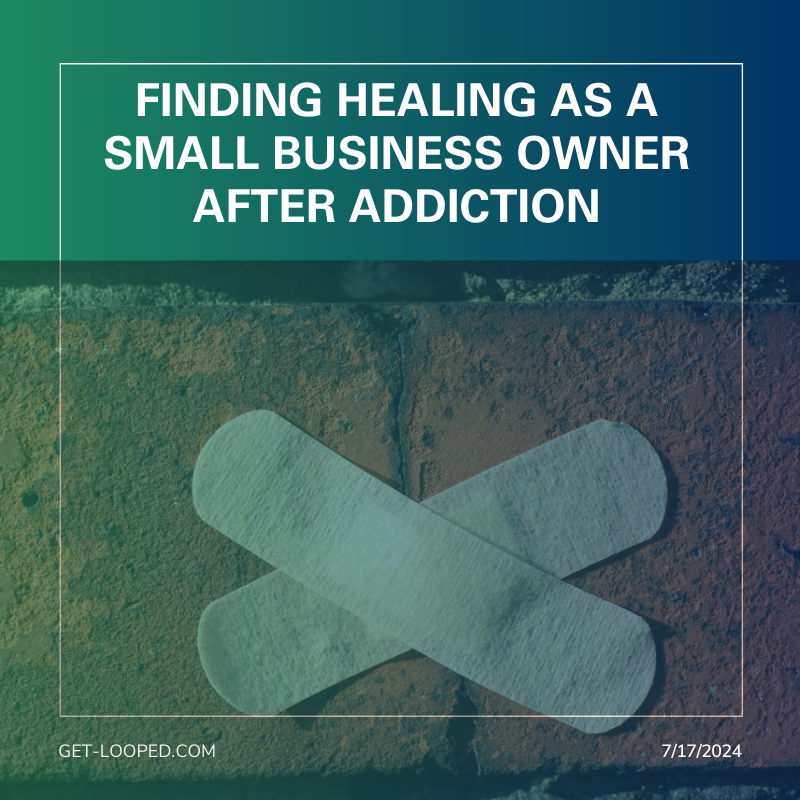Finding Healing as a Small Business Owner After Addiction
Running a small business is challenging on its own. When combined with the struggle of overcoming addiction or other risky behaviors, the journey can seem even more daunting. However, there is a path to healing that can transform both your personal life and your business. Here’s a guide to help small business owners navigate their recovery journey.
The first step in any healing journey is acknowledging the problem. Admitting to having an issue can be difficult, especially for high-achieving business owners. Recognizing the problem is crucial, as denial can lead to further damage both personally and professionally.
Seeking professional help is often necessary for overcoming addiction and risky behaviors. Therapists, counselors, and support groups provide the tools and support needed for recovery. Professional expertise can be invaluable on this journey.
Recovery is not a solitary journey. Building a supportive network of friends, family, and colleagues is essential. Connecting with other business owners who have faced similar challenges can be particularly beneficial. Sharing experiences and strategies with peers can provide both encouragement and practical advice.
Establishing healthy routines is vital in recovery. Regular exercise, balanced nutrition, and adequate sleep form the foundation of a healthy lifestyle. Incorporating mindfulness practices such as meditation or yoga can help manage stress and improve focus, further supporting your recovery journey.
As you progress in your recovery, it’s important to redefine what success means to you. Instead of focusing solely on financial gains, consider the overall well-being of yourself and your business. Striving for a balanced life where work and personal health coexist is a healthier and more sustainable approach.
Recovery often brings clarity about what truly matters. Use this insight to integrate your core values into your business. This might involve adopting more ethical practices, creating a supportive workplace culture, or improving work-life balance. A values-driven business can attract loyal customers and dedicated employees.
Educating and training your team about the importance of mental health and recovery can also be beneficial. Offering training on recognizing the signs of addiction and risky behaviors, and creating a supportive environment where employees feel comfortable seeking help, can foster a healthier workplace.
Setting realistic goals is crucial during recovery. Overextending yourself can lead to relapse or burnout. Break down larger goals into smaller, manageable tasks, and celebrate progress, no matter how small. Patience with yourself is key.
Running a business while in recovery can be unpredictable. Creating a contingency plan for managing your business during times when you need to focus more on your recovery can help. This might involve delegating tasks, hiring temporary help, or reducing your workload temporarily.
Practicing self-compassion is essential. Recovery is a journey with ups and downs. Be kind to yourself during setbacks and celebrate your achievements. Remember that healing is not linear, and it’s okay to seek help when needed.
There are numerous resources available to support small business owners in recovery. Organizations like SCORE offer free business mentoring and education. Local chambers of commerce and small business development centers can provide additional support and networking opportunities.
Technology can be a powerful ally in your recovery journey. Apps like Headspace or Calm can aid in mindfulness practices, while project management tools like Trello or Asana can help keep your business organized, reducing stress. Online therapy platforms can provide convenient access to professional support.
Giving back can be a powerful aspect of your recovery. Consider how your business can support others in their healing journeys. This might involve creating initiatives to support local recovery programs, offering internships to individuals in recovery, or simply sharing your story to inspire others.
Regularly reflecting on your progress and adjusting your strategies as needed is important. Recovery is an ongoing process, and what works at one stage might need tweaking at another. Stay flexible and open to new approaches.
Finally, celebrate your milestones. Whether it’s a month of sobriety or a successful business quarter, acknowledging your achievements is crucial. Celebrating not only boosts your morale but also reinforces the positive changes you’re making.
Healing after addiction or risky behaviors is a profound journey that can transform both your personal life and your business. By acknowledging the problem, seeking help, and integrating healthy practices, you can find a balance that fosters both recovery and business success. Remember, you are not alone in this journey—support is available, and every step forward is a victory. Your experience can also serve as an inspiration to others, showing that recovery and business success can go hand in hand.



